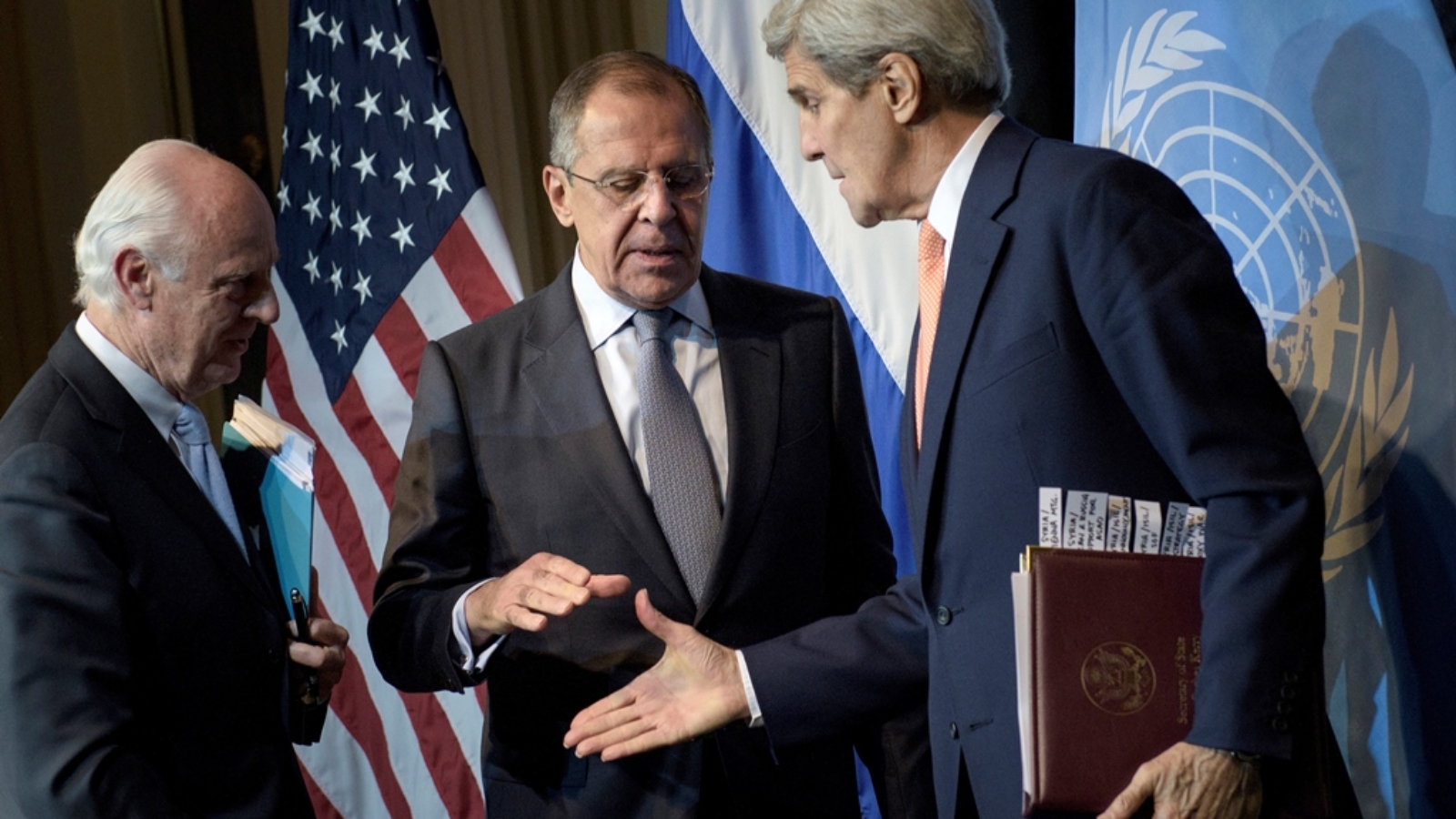This post was originally published by Syria Deeply.
By Sharif Nashashibi
Conferences on Syria do not simply evoke a sense of deja vu — we really have seen it all before. Stock footage and statements should be made for future talks to save everyone the repeated effort.
The latest round of negotiations, held in Vienna on Friday, were much like their predecessors: prior fanfare, the absence or exclusion of key players, no breakthroughs, an escalation of fighting before, during and after, and a schizophrenic mixture of tough talk and wishful thinking masking the significance of the talks.
The big news in the runup to the conference was that for the first time, Iran — a primary backer of the Syrian regime — had been invited and would attend. U.N. Secretary-General Ban Ki-moon proclaimed that the meeting marked the first time that “all the countries that hold the key to a resolution” had been present. However, for reasons that defy logic, Syrians — whose participation would matter the most — were excluded.
For all the self-congratulation about inclusivity, those without which a solution would be impossible were absent, denied their right to determine their collective future. As such, any outcome would have looked to them like a diktat. What stronger sign than the conference guest list to demonstrate the extent to which foreign powers pull the strings in the conflict? How apt, then, that it took place at the Imperial Hotel.
As it stands, however, the outcome of the talks resembled those in Geneva that started the Syrian “peace process” in 2012: calls for a cease-fire, followed by a transition of power, leading to a pluralistic, democratic Syria. All well and good, but without agreement over what role, if any, President Bashar al-Assad would play. In other words, zilch… again.
“I believe that the future of Syria, or the future of all these peace talks, the Syrian-led negotiation, should not be held up by an issue of the future of one man,” Ban said, as if Assad’s future is a trivial matter that has caused unnecessary deadlock (never mind that the Vienna talks were the antithesis of “Syrian-led”).
Assad is at the center of it all — the man whose brutal totalitarianism caused a popular uprising that has been suppressed by war crimes and crimes against humanity. Assad’s determination to cling to power, come what may, has destroyed the country, cost hundreds of thousands of lives, displaced more than half the population, destabilized the region, and created the very extremism against which he claims to be an indispensable opponent. How can a country personified for so long by a dictator move on and rebuild when his fate is undetermined?
The Vienna talks agreed on U.N.-backed elections that involve all Syrians, including the diaspora. No time frame was set, but many Syrians are unlikely to accept a proposition that places Assad in power for the length of time it would take a shattered country and scattered people with no experience of democracy to properly prepare for free and fair elections. Some parties are proposing a transition period of six months, but organizing a credible vote in that time is delusional.
In any case, Assad has said he would participate in elections that include “reasonable, patriotic opposition forces,” but only when “terrorism” is defeated — a stance his foreign minister reiterated to U.N. envoy Staffan de Mistura shortly after the Vienna talks.
The thing is, Assad describes all rebel groups as terrorists, and only considers as legitimate those “opposition” groups that are rubber-stamped by his regime. As such, he is setting preconditions that can be bent and extended to ensure elections are postponed for as long as possible, and that he faces no credible opposition when they take place, as happened during the last farcical vote in 2014.
Assad’s allies support his candidacy as an exercise in democracy. The irony that he has systematically denied democracy to the Syrian people is lost on them.
Assad is emboldened by Russia’s ongoing bombing campaign and ramped up military aid. Moscow would have us believe that this somehow brings us closer to a negotiated settlement. What disdain Assad must have had for the meeting in Vienna, when on that same day, Syrian and Russian airstrikes killed nearly 150 people in a series of bombings, including a marketplace in Douma.
Another round of talks reportedly may take place in the coming week or two, not that it will make any difference. The parties involved will have another opportunity to feel good about themselves, and portray themselves as genuine proponents of peace while simultaneously increasing their involvement in the war to varying degrees.
Every round of talks seems further removed from the reality on the ground.
We will be treated to the usual face-saving statements about how foundations are being built — not for a solution to the conflict, but for the next round of fruitless talks, and the one after, and so on, like a never-ending scaffolding manufactured to fortify a structure that simply does not exist.
*****
The views expressed in this article belong to the author and do not necessarily reflect the editorial policy of Syria Deeply.
*****
*****
Sharif Nashashibi is a journalist and commentator on Arab affairs. He is a regular contributor to multiple news organizations, among them Al Jazeera English, Al Arabiya English, The National and the Middle East Eye.
[Photo courtesy of Syria Deeply]